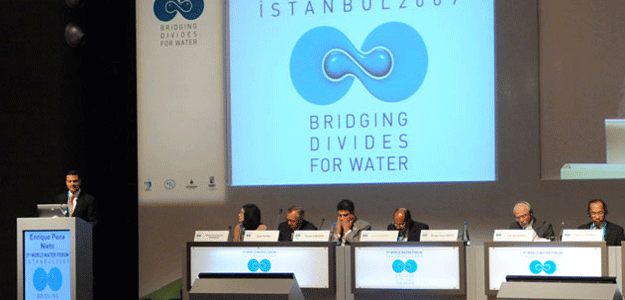
An Overflowing Issue

The second day of the 5th World Water Forum in Istanbul featured a lengthy and sometimes divisive session with representatives from the Americas, who tackled the strain that growing populations are placing upon shared water sources. Water, it appeared, had been a topic that had been largely downplayed in the past, as nations now struggled to develop action plans to protect, develop, and maximize their water supplies. As Jose Machado of Brazil's National Water Agency warned, without input from all stakeholders in the Americas on the management of water resources, there would be assured conflict.
The Americas session seemed to consist primarily of warnings and issues- generally far more than solutions. Representatives from Mexico and the United States both said that their countries needed to do far more to regulate water on the national level, with Gerald Sehlke of the American Water Resources Association saying that the US needed "a national water vision."
Smaller nations were no less adamant about the need for change. Representatives from the Caribbean and Central America were quick to say that without support from developed nations in the region that they would be highly vulnerable to climate change. One victory came in the form of Luiz Zurita Tablada, Vice-Minister of Environment and Natural Resources for Guatemala, who pledged that his country was helping to develop a Central American Action Plan to help neighboring nations manage their water supplies.
A major breakthrough could come from the investment by Spain through the Spanish Water and Sanitation Fund, which will help train Latin American engineers to construct economical water technology and develop methods to ensure water is use is sustainable. More controversy came from the announcement by the US Army Corps of Engineers who released their Americas Regional Document, which had been created through the collaboration of multiple governments and called for universal access to clean water. Critics dampened the report's release, claiming the committee was not inclusive enough and did not offer any new solutions to the problem.
-Equatorial Press Staff Report. Photo by IISD.
